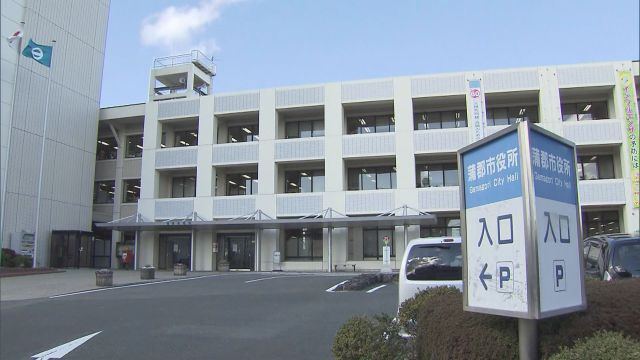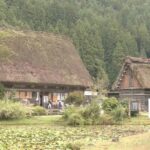An incident of «double voting» was discovered during the House of Councillors election in Gamagori City, Aichi Prefecture.
According to the Gamagori Election Commission, around 7:30 AM on the 20th, staff noticed that the number of ballots issued at the polling station in City Hall during the 7 o’clock hour exceeded the number of votes registered in the voter tracking system by one.
An investigation revealed that an individual who had voted early on the 6th (without receiving a ballot at home) came to vote again on the 20th, resulting in «double voting.»
The Commission explained that the error occurred because polling station staff failed to check the system for the «early voting completed» status during registration.
Since the ballot box cannot be opened to identify the duplicate ballot, all votes will be considered valid.
The Election Commission plans to implement measures, including adding warning screens to the system, to prevent similar incidents in the future.
Gamagori City
Gamagori is a coastal city in Aichi Prefecture, Japan, known for its scenic views, hot springs, and attractions such as Takeshima Island, connected to the mainland by a bridge. The island hosts a Shinto shrine dedicated to Benzaiten, the goddess of music and art. Historically, the city developed as a port during the Edo period (1603-1868) and later became a center for salt production. Today, it is a popular resort destination with beaches and a famous fireworks festival.
House of Councillors
The **House of Councillors** is the upper house of Japan’s National Diet (Kokkai), established in 1947 under the post-war Constitution. It replaced the pre-war House of Peers and serves as a deliberative body, reviewing and amending laws passed by the lower house (House of Representatives). Members are elected through a mixed system (proportional representation and regional districts) for six-year terms, with half the membership rotating every three years.
Gamagori City Hall
Gamagori City Hall is the administrative center of Gamagori City in Aichi Prefecture, known for its coastal scenery and hot springs. It is a modern facility focused on city administration rather than a historical landmark. Gamagori itself has a rich history tied to fishing and trade dating back to the Edo period (1603–1868).
Gamagori Election Commission
The Gamagori Election Commission is a municipal body in Aichi Prefecture responsible for organizing elections. It ensures the integrity of electoral processes, including voter registration, ballot distribution, and vote counting. It operates under national laws developed to strengthen democracy after World War II.
Gamagori City Hall
Gamagori City Hall is the administrative center of Gamagōri, a city in Aichi Prefecture, Japan. While specific historical details about the building itself are limited, it serves as a hub for local governance and community services in a city known for its coastal scenery and cultural sites like the Takeshima Island. The hall reflects the city’s modern infrastructure while supporting its historical and economic development.
Gamagori City
Gamagōri City, located in Aichi Prefecture, Japan, is a coastal city known for its scenic beauty, hot springs, and cultural attractions. Historically, it developed as a port town during the Edo period (1603–1868) and later became a hub for salt production. Today, it is famous for attractions like Takeshima Island, connected by a bridge, and its relaxing onsen resorts.
House of Councillors
The **House of Councillors** is the upper house of Japan’s National Diet (parliament), established in 1947 under the post-World War II Constitution. It replaced the pre-war House of Peers and serves as a deliberative body with the power to review and amend legislation passed by the lower house, the House of Representatives. Members are elected through a mixed system of regional and proportional representation, with staggered six-year terms ensuring continuity.
Takeshima Island
Takeshima Island (known as Dokdo in South Korea) is a group of small islets in the Sea of Japan (East Sea) that has been a long-standing territorial dispute between Japan and South Korea. Japan claims historical control dating back to the 17th century, while South Korea administers the islets today, citing records from the Silla Dynasty (6th century). The dispute remains unresolved, with both nations maintaining strong cultural and political ties to the territory.
Shinto shrine
A Shinto shrine is a sacred place in Japan dedicated to the kami (spirits or deities) of Shinto, the indigenous religion of Japan. These shrines, often characterized by torii gates and traditional architecture, serve as sites for rituals, festivals, and worship, with some dating back over a thousand years. Historically, they reflect Japan’s spiritual traditions and connections to nature, with famous examples like Ise Grand Shrine and Itsukushima Shrine.
Benzaiten
Benzaiten is a Japanese Buddhist goddess of arts, wisdom, and water, originally derived from the Hindu goddess Saraswati. She is often enshrined in Shinto-Buddhist syncretic sites, such as on Enoshima Island and at Itsukushima Shrine, where she is venerated as a protector and bringer of good fortune. Her worship reflects Japan’s blending of indigenous and imported religious traditions.
Edo period
The Edo period (1603–1868) was a time of relative peace and stability in Japan under the rule of the Tokugawa shogunate, marking the country’s final era of traditional feudal governance. During this time, Japan isolated itself from much of the world (sakoku policy), while experiencing cultural flourishing in arts, theater (like kabuki), and urban growth, particularly in Edo (modern-day Tokyo). The period ended with the Meiji Restoration, which restored imperial rule and began Japan’s rapid modernization.
Gamagori Election Commission
The Gamagori Election Commission is a local administrative body in Gamagōri, Aichi Prefecture, Japan, responsible for managing elections and voter registration in the city. While specific historical details about this commission are limited, it operates under Japan’s electoral laws to ensure fair and transparent democratic processes. Like other municipal election commissions in Japan, it plays a key role in upholding civic participation and electoral integrity.






